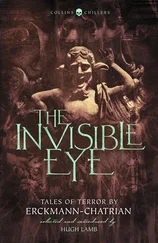I do not remember the exact sequence of Gamzu’s remarks, but I recall that he told me again about the garment, and in bringing this to mind made mention of his teacher. Having spoken of him, he also mentioned the time of his youth, which he had spent as a student in yeshivas.
You know Gamzu as a man with many connections, in demand among scholars of the East and West alike for books and manuscripts. But he had begun as any other yeshiva student, boarding out on the charity of the local townspeople. Once a certain householder sent him to buy a copy of the Concise Shulhan Arukh. At the bookseller’s he came across a book quite different from the rest. Every other line of print was indented, and every word had vowel points; some lines resembled the Great Hymn of Praise sung by the ministering angels, some the confessional Al Het. He looked at it for a long while, full of wonder; never in his life had he seen a book like this. The bookseller watched him, and told him he could have it for forty kreutzer. For a yeshiva student, forty kreutzer was a large sum; even if he sold his long coat, he would not get that amount for it. But he had a box which a carpenter had made him in return for giving lessons to his son. It was something of a luxury, since all his possessions, apart from the clothes which he stood up in, could be wrapped in his shirt; but it gave him the kind of pleasure one feels in owning an article of intrinsic beauty. He gave his box to the bookseller and received the book. It was the divan of the poems of Judah Halevi, edited by S. D. Luzzatto. He read it again and again, until he knew all the poems by heart. And still he was unsatisfied. He began to pore over festival prayers and penitential hymns and elegies and old prayer books, reading and transcribing for himself. He could not afford the paper to copy down all the things he liked, so he noted down only the opening lines as reminders. Because he was so fastened to poetry, he came unfastened at the yeshiva. Accordingly he went and hired himself out to a bookseller. The shopkeeper could see that he knew a great deal, and sent him out to widows with the books of their husbands left on their hands, as well as to the “enlightened” rich who were clearing their homes of sacred literature. In time he began to make his own purchases. Later, he started traveling to far-off countries, and still later, to lands which no European had ever crossed. He reached the farthest edge of the desert and brought out books and manuscripts of which the most eminent bibliographers had no knowledge, as well as divans by anonymous poets who in their holiness and humility had left no record of their names.
Gamzu rolled himself a cigarette and laid it down. He rubbed his dead eye, smiled out of his good eye, and again took up the cigarette, holding it unlit between his fingers and saying, “When I pass over to the next world, they will lead me to the place where carcasses like me belong. I shall lie there in my shame, justifying the divine decree that I have been left exactly where I am, telling myself I have no right to expect anything better, naked as I am of merit and good works. At that moment, rank upon rank of demons will be massing against me, created out of my own sins. They will rise on high before the seat of judgment to accuse me and make hell deep for me. While waiting for the sentence, what shall I do? I shall recite from memory the hymns I know, until I forget where I am, and become so excited by them that I shall start shouting them aloud. The holy poets will hear me and say, ‘What noise is that from the grave? Let us go and see.’ They will come down and see this wretched soul and take me up in their hallowed hands, saying, ‘You are the man who rescued us from the depths of oblivion.’ And they will smile at me in the humility of their virtue and say, ‘Gabriel Gamzu, come with us.’ So they will bring me to dwell with them, and I will find shelter in the shade of their holiness. That is how I console myself in my misery.”
Gamzu sat there smiling, with the expression of a man who knowingly deceives himself and is aware that he is only joking at his own expense. But I knew him very well; I understood that he believed in what he had said, more completely, perhaps, than he would admit to himself. I looked at his face, the face of a Jew out of the Middle Ages, reincarnated in this generation in order to procure manuscripts and early prints for scholars and investigators, enabling them to write observations and annotations and bibliographies, so that men like me might read these works and delight in the beauty of their verse.
Thus Gamzu bore his sufferings and solaced himself with the thought of better things to come. Meanwhile he was fully taken up with the troubles of his wife, an incurable invalid. I began to speak to him about nursing homes where the sick receive some degree of attention. “It would be a good idea to place Gemulah in a nursing home,” I said. “As for the cost, I have here the first payment of twelve pounds; the rest will surely come.”
Gamzu blew on his skullcap. “Those twelve pounds,” he said, “are what I received for the manuscripts I sold to whoever got the talismans.” I asked if he suspected this person of taking the magic objects by deceit.
“I am not a suspicious man,” he said. “It is possible that whoever took them did not notice them at first, and when he did so, told himself that since they had come into his possession they were his. Or perhaps he believed that the charms were part of the lot he had bought. He may sometimes have thought one way, and sometimes another. Morality admits of compromise, and a man can still be moral even if he compromises according to his need; especially where books are concerned.”
“Do you suppose,” I asked, “that he knows the properties of the charms?”
“How should he know? If an article of that kind came into my hands by chance, and no one told me what it was, would I know? Besides, all these scholars are modern men; even if you were to reveal the properties of the charms, they would only laugh at you; and if they bought them, it would be as specimens of folklore. Ah, folklore, folklore! Everything which is not material for scientific research they treat as folklore. Have they not made our holy Torah into either one or the other? People live out their lives according to the Torah, they lay down their lives for the heritage of their fathers; then along come the scholars, and make the Torah into ‘research material,’ and the ways of our fathers into folklore.”
I listened carefully to what Gamzu said, and thought of those scholars who acquire what their original owners regarded as articles of magic, but which for those who have bought them are only so much bric-a-brac; and I thought, too, of this poor Gamzu, afflicted and dejected, whom the Holy One had crushed with sorrow. If we are allowed to judge a man by his deeds, surely it was not for the deeds Gamzu had done in this incarnation that he had been so doomed. But who was I to involve myself in these issues? Such as I was, I should be satisfied that the Holy One had, in a manner of speaking, not looked in my direction for some little while. I passed my hand over my forehead as if to set these thoughts aside, and gave all my attention to my companion.
There he sat, in a strange posture, his head bent to one side and an ear turned towards the wall. After a considerable lapse of time, in which he still kept his ear averted, I said, “You look as if you can hear what the stones in the walls are saying to one another.”
He stared at me without reply and went on listening, his ear concentrated on the wall and both eyes aflame. There was no difference between his good eye and his dead eye, except that one was full of amazement and the other grew more and more irate. I took it that he was listening to matters which made him angry, and asked, “Can you hear anything?”
Читать дальше












